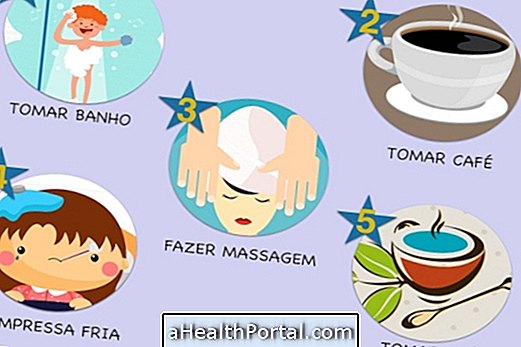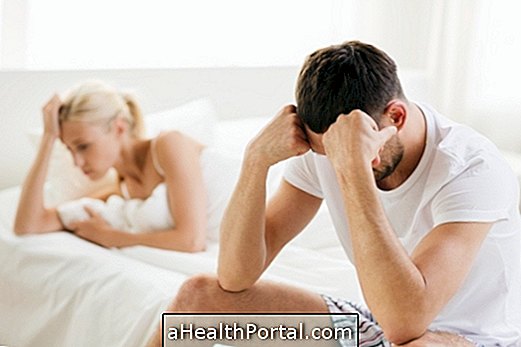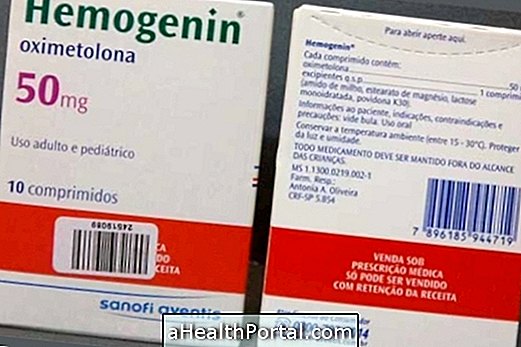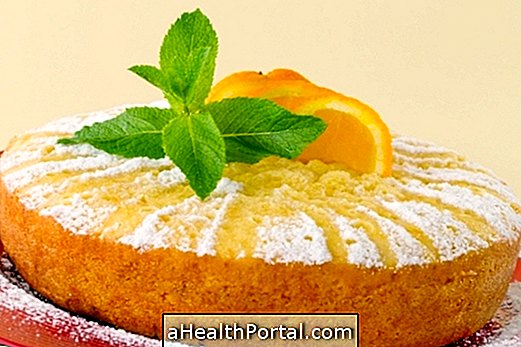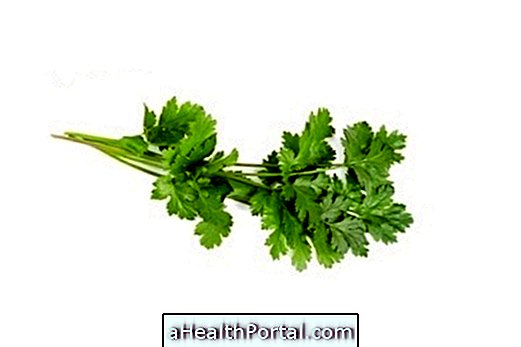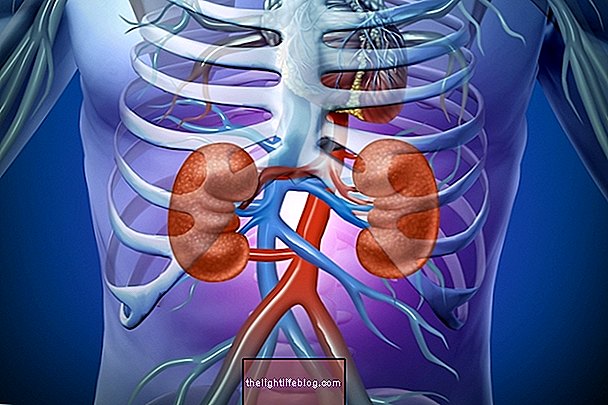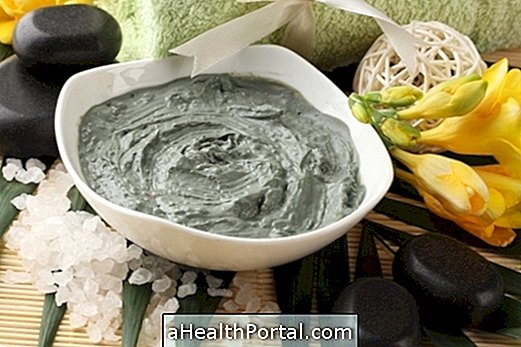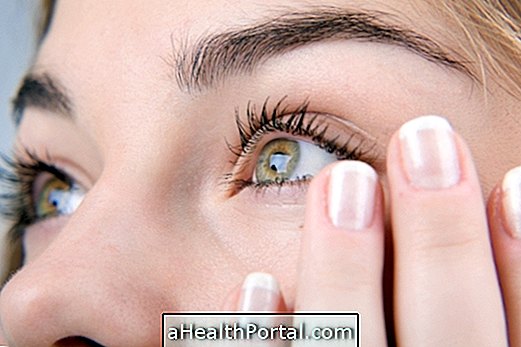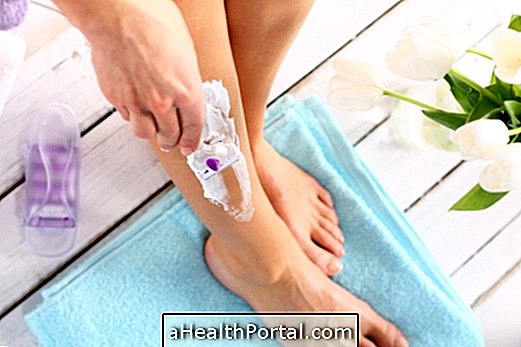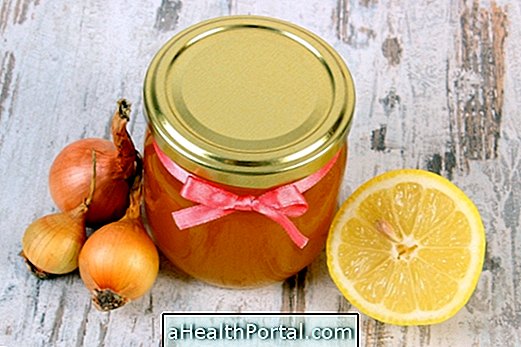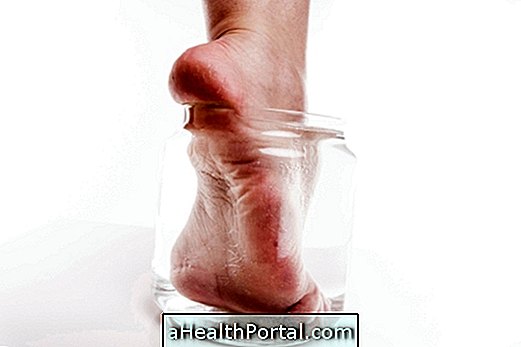The treatment of coronavirus infection (COVID-19) varies according to the intensity of the symptoms. In the mildest cases, in which there is only a fever above 38ºC, severe cough, loss of smell and taste or muscle pain, the treatment can be done at home with rest and the use of some medications to relieve symptoms.
In the most severe cases, in which there is difficulty in breathing, feeling of shortness of breath and chest pain, the treatment needs to be done while in hospital, since it is necessary to carry out a more constant evaluation, in addition to the need to administer medications. directly into the vein and / or use respirators to facilitate breathing.
On average, the time it takes for a person to be considered cured is 14 days to 6 weeks, varying from case to case. Understand better when COVID-19 cures and clarify other common doubts.
/como--feito-o-tratamento-para-coronavrus-(covid-19).jpg)
Treatment in milder cases
In the milder cases of COVID-19, treatment can be done at home after medical evaluation. Usually treatment includes resting to help the body recover, but it can also include the use of some medications prescribed by the doctor, such as antipyretics, pain relievers or anti-inflammatories, which help to reduce fever, headache and illness be general. See more about the remedies used for coronavirus.
In addition, it is important to maintain good hydration, drinking at least 2 liters of water per day, since the intake of liquids allows to avoid possible dehydration, in addition to optimizing the functioning of the immune system.
Eating a healthy diet, investing in eating foods rich in protein, such as meat, fish, eggs or dairy products, as well as in fruits, vegetables, cereals and tubers is also recommended, as it helps to keep the body healthy and the immune system more strengthened . In case of coughing, very hot or cold foods should be avoided.
Care during treatment
In addition to the treatment, during the COVID-19 infection it is important to take care not to transmit the virus to other people, such as:
- Use a mask well adjusted to the face in order to cover the nose and mouth and prevent the droplets from coughing or sneezing from being projected into the air;
- Maintain social distance, since it allows to reduce contact between people. It is important to avoid hugs, kisses and other close greetings. Ideally, the infected person should be kept in isolation in the bedroom or other room in the house.
- Cover your mouth when coughing or sneezing, using a disposable handkerchief, which should then be thrown in the trash, or the inside of your elbow;
- Avoid touching the face or mask with your hands, and in the case of touching it is recommended to wash your hands immediately afterwards;
- Wash your hands with soap and water regularly for at least 20 seconds or disinfect your hands with 70% alcohol gel for 20 seconds;
- Disinfect the cell phone frequently, using wipes with 70% alcohol or with a microfiber cloth moistened with 70% alcohol;
- Avoid sharing objects such as cutlery, glasses, towels, sheets, soaps or other personal hygiene items;
- Clean and ventilate the rooms of the house to allow air circulation;
- Disinfect the door handles and all objects shared with other people, such as furniture, using 70% alcohol or a mixture of water and bleach;
- Clean and disinfect the toilet after use, especially if used by others. If cooking is necessary, the use of a protective mask is recommended
- Put all the garbage produced in a different plastic bag, so that due care is taken when it is disposed of.
In addition, it is also advisable to wash all used clothing, at least at 60º for 30 minutes, or between 80-90ºC, for 10 minutes. If washing at high temperatures is not possible, it is recommended to use a disinfectant product suitable for laundry.
See more precautions to avoid transmission of COVID-19 at home and at work.
/como--feito-o-tratamento-para-coronavrus-(covid-19)_2.jpg)
Treatment in the most severe cases
In more severe cases of COVID-19, in which pneumonia or other serious complications develop, it is important that treatment be done while in hospital, so that the person can receive oxygen, take medication directly into the vein and maintain vital signs regularly evaluated.
For these cases, ANVISA also approved the use of the first drug against COVID-19, Remdesivir, an antiviral drug that is able to help the body eliminate the virus faster, facilitating the cure and that should be administered only at the hospital. through an injection.
In case there is a lot of difficulty in breathing or if breathing starts to fail, it is possible that the person is transferred to the Intensive Care Unit (ICU), so that specific equipment, such as the respirator, can be used and so that the person may be under closer surveillance.
What to do if symptoms persist after treatment
According to the World Health Organization, people who show symptoms, such as tiredness, cough and shortness of breath, even after having undergone treatment and considered cured, should regularly monitor their oxygen levels at home, using a pulse oximeter. These values must be reported to the physician responsible for monitoring the case. See how to use the oximeter to monitor oxygen levels at home.
For patients who remain hospitalized, even after being considered cured, WHO recommends the use of a low dose of anticoagulants to prevent the appearance of clots, which can cause thrombosis in some blood vessels.
When to go to the hospital
In cases of mild infection, it is recommended to return to the hospital if the symptoms worsen, in case of chest pain, shortness of breath or if the fever stays above 38ºC for more than 48 hours, or if it does not decrease with the use of the indicated medications. by the doctor.
Does the COVID-19 vaccine help with treatment?
The main objective of the vaccine against COVID-19 is to prevent the onset of infection. However, administration of the vaccine appears to decrease the severity of the infection even if the person becomes infected. Learn more about vaccines against COVID-19.
Learn more about the vaccination of COVID-19 in the following video, in which Dr. Esper Kallas, infectious disease and Full Professor of the Department of Infectious and Parasitic Diseases at FMUSP clarifies the main doubts regarding vaccination:
/como--feito-o-tratamento-para-coronavrus-(covid-19)_3.jpg)
Is it possible to get COVID-19 more than once?
There are reported cases of people who have taken COVID-19 more than once, which seems to confirm that this hypothesis is possible. However, the CDC [1] also reports that the body produces antibodies that are capable of producing natural immunity against the virus, which appear to remain active, at least, during the first 90 days after the initial infection.
Still, it is recommended that all individual protection measures be maintained before, during or after COVID-19 infection, such as wearing a mask, maintaining social distance and washing your hands frequently.
Was this information helpful?
Yes No
Your opinion is important! Write here how we can improve our text:
Any questions? Click here to be answered.
Email in which you want to receive a reply:
Check the confirmation email we sent you.
Your name:
Reason for visit:
--- Choose your reason --- DiseaseLive betterHelp another personGain knowledge
Are you a health professional?
NoMedicalPharmaceuticalsNurseNutritionistBiomedicalPhysiotherapistBeauticianOther
Bibliography
- DIRECTORATE-GENERAL FOR HEALTH. food. Available in: . Accessed on 22 Dec 2020
- SNS24. COVID-19. Available in: . Accessed on 22 Dec 2020
- SNS24. Preventive measures. Available in: . Accessed on 22 Dec 2020
- SNS24. Testing and treatment. Available in: . Accessed on Dec 22, 2020
- MINISTRY OF HEALTH. Coronavirus (COVID-19): what you need to know. Available in: . Accessed on Dec 22, 2020
- MBAEYI, Sarah. Use of Pfizer-BioNTech COVID-19 Vaccine: Clinical Considerations. 2020. Available at:.
- WHO. WHO recommends follow-up care, low-dose anticoagulants for COVID-19 patients. Available in: . Accessed on 27 Jan 2021
/vacina-covid-19-como-funciona-eficcia-e-efeitos-colaterais.jpg)
/como--feito-o-tratamento-para-coronavrus-(covid-19).jpg)
/16-dvidas-sobre-a-vacina-do-coronavrus-(covid-19).jpg)


